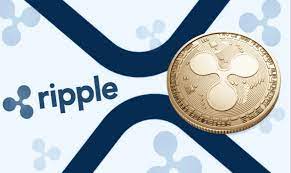What is the “truth,” and what is a “fact”? While the question may seem silly and the answer obvious, the fact of the matter (pun intended) is that what is considered accurate or truthful can vary wildly from person to person. Much of the world lives in increasingly divided and fragmented societies where two people may not agree on much of anything at all, including what is fake news and what is real news. Add social media to the mix, and the idea of there being any one universal source of truth becomes even less believable.
Historically, fact-checkers have been seen as unbiased mediators to get to the bottom of what is fact and what is fiction. Websites like Snopes attempt to break down the truth behind current events, and newsrooms employ staff whose job is to ensure their stories are straight. But even fact-checkers themselves — and the organizations they work for — hold biases that may influence their process or help determine which issues they investigate and which they decide to leave alone.
On Episode 28 of The Agenda podcast, hosts Jonathan DeYoung and Ray Salmond spoke with Evan Hansen, co-founder and CEO of Factland DAO, about how blockchain technology can be an unsuspecting force multiplier and equalizer for the fact-checking process. Hansen is a media veteran who took his frustrations with the state of misinformation and turned to Web3 to launch the decentralized autonomous organization.

The decentralized, DAO-based approach to fact-checking
Factland is still in beta mode at the time of writing, with Hansen describing it as “a DAO in name only, at the moment.” Presently, anyone can bring forward a claim they want fact-checked, others can offer up evidence in favor of it being true or false, and then a provably random group of jurors cast a vote to determine the final outcome — the results of which are timestamped and stored on the Internet Computer.
Once the DAO and associated decentralized application officially launch, the expanded Web3 elements will kick in. Anyone will still be able to submit a claim, and the jurors will remain random, but those jurors will receive FACT tokens for their service. Other DAO members will also be able to stake their own FACT tokens toward the verdict they believe will win. Once the verdict has been selected, the stakers who pledged for the winning side will split the pool of staked tokens. Individuals who provide the most compelling evidence will also be rewarded with FACT tokens.
“Currently, our community is relatively small, and the juries are small. But in theory, you could expand this to the point where there might be 10,000 jurors reviewing a large set of facts and issuing a verdict that really represents the consensus of the community at large and, hopefully, the society at large.”
What’s wrong with the status quo?
According to Hansen, having a large number of provably random jurors is a more effective, less biased way to determine what is a fact and what is misinformation than relying on a more traditional approach. He told DeYoung and Salmond that “a lot of other research” demonstrates that “ordinary random people, if there’s enough of them helping decide, perform as well or better than experts.”
This contrasts with the traditional fact-checking model, in which a small handful of appointed “experts” at newsrooms or other agencies determine what is true and what is false. The problem with this, according to Hansen, is that “they have, oftentimes, agendas, and they have political bias, and they have funding sources that may be compromising in terms of outcomes or the political discourse they want to support or they want to undermine.”
“We felt like to scale this properly, you need an army of people who can do this. And to do it in a way that then overcomes some of these inherent questions about the bias of the fact-checking enterprise, you need to do it in a way that is decentralized — that allows all the voices to come forward and then have a kind of group decision about, is this a worthy question? Should we be bothering with this? But not a particular group of gatekeepers doing it.”
To hear more from Hansen’s conversation with The Agenda — including the current state of misinformation, the positives and negatives of social media, and whether or not there is an objective “truth” in media — listen to the full episode on Cointelegraph’s Podcasts page, Apple Podcasts or Spotify. And don’t forget to check out Cointelegraph’s full lineup of other shows!
Magazine: Asia Express: Fake news crypto panic, Binance gains users as market share falls?
This article is for general information purposes and is not intended to be and should not be taken as legal or investment advice. The views, thoughts, and opinions expressed here are the author’s alone and do not necessarily reflect or represent the views and opinions of Cointelegraph.










